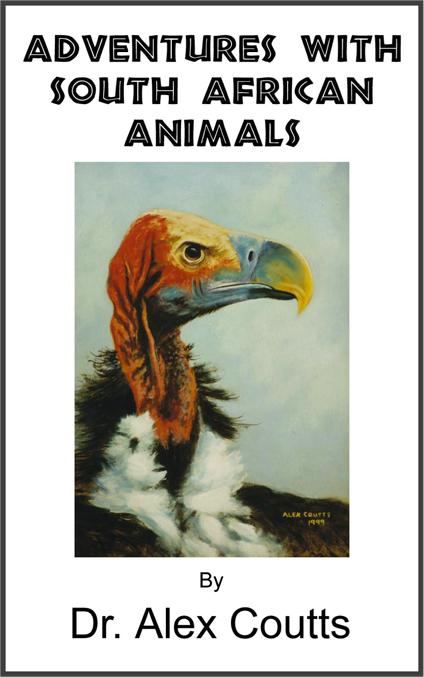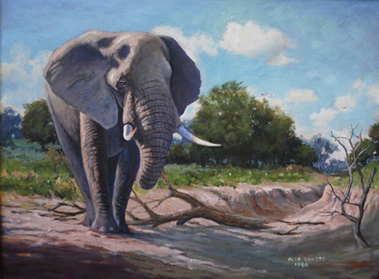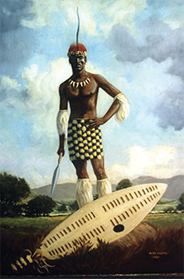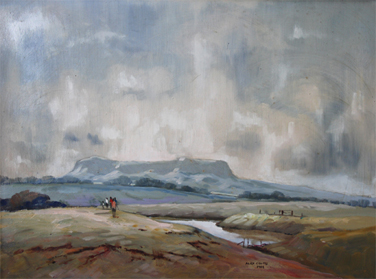| |
ALEX-BOOKS
Currently for sale on Amazon Kindle.
http://www.amazon.com/Alex-Coutts
Adventures with
South African Animals

About the cover painting:
The cover picture is an oil painting of a lappet-faced
vulture. Painted in oils by the author, the subject is a
fine example of the myriads of magnificent creatures
encountered in the wilder parts of South Africa.
Copyright:
Dr Alex Coutts, author and artist, holds full copyright
to the cover painting as well as the text of the book
Adventures with South African animals.
About this book:
In this book, the author traces lessons learnt directly
from contact with wild nature, seen against a background
of urban life, travel, apartheid and national liberation
politics in South Africa. The devious messiness of human
creations, including politics and finance, contrasts
with the compelling freshness and brutal authenticity of
the wild natural environment.
The book also contains a patchwork of anecdotes on
encounters with African wildlife, within and outside the
province of KwaZulu-Natal on the east coast of South
Africa. The function of animal behaviour is occasionally
analysed, with the behaviour speaking for itself as an
integral part of what the animal is. Animal behaviour
nevertheless provides pause for deeper reflection on our
own origins as a species as well as the problems
inherent in the survival of our most beautiful wild
creatures and pristine natural environment. We, who seem
to be a faltering experiment, are setting ourselves up
for an inevitable, disastrous future, if one exists at
all. To add substance to the narrative, the books dips
into ecology, biology, conservation, biodiversity,
palaeontology, anthropology and other sciences.
The author explores some of the many frailties of human
nature and traces them largely to their origins in the
natural world of Africa, the cradle of humankind. They
are always with us, ever-present and constantly
threatening to direct our actions in a demanding
technological and even virtual world.
There seems to be little hard evidence coming from the
natural world, of deeper meanings behind creation.
Exploring these is beyond the realms of science. The
dilemma implies for the writer that one has to base
religion on faith alone, since the tools for research of
the natural world are clearly inadequate to explain
belief. Always, there is the background presence of an
infinitely powerful First Cause, shrouded in mystery and
with only occasional glimpses of intrinsic power,
majesty and perfect example.
The process of analysis leads inevitably to a major
theme of the book, namely the extraordinary diversity
and fragility of the natural environment itself, so
richly evident in South Africa yet increasingly
relegated to the status of a resource to pillage. The
process of destruction exemplifies the limited
intelligence of the self-proclaimed pinnacle of natural
creation, and the ‘illusion of central position’ that
motivates it. The book concludes with contemplation of
the greatest threat to biological diversity, which comes
from humanity itself; the superior apes that have
originated in nature and will return to it, yet engage
so fiercely with destroying it.
Disclaimer:
This book provides condensed information only, and is
designed to provoke thought by complementing,
supplementing and amplifying other texts and records.
You are urged to read as much other available material
as possible and tailor the information to your
individual needs. Every effort has been made to ensure
that this book is as accurate and complete as possible
within space constraints. There might nevertheless be
errors, either content or typographical.
The author and Alex Educational shall have neither
liability nor responsibility to any person or entity
with respect to any loss or damage caused, or alleged to
have been caused, directly or indirectly, by the
information contained in the book. The text is therefore
to be used as a general guide and not as the ultimate
source of information on the topic.
|
|



